In December of 2020, three days shy of my forty-fourth birthday, my wife and I closed on our fifteen-acre homestead in Cabot, Arkansas, just outside of Little Rock. It was a substantial high note to a year of biblically proportioned lows and losses. The global pandemic and civil unrest underscored our need for a safe space as two Black queer women in this country (and arguably, this world that seems to thrive on anti-Blackness and misogynoir).
The purchase was the culmination of our relocation from Chicago and its violence (equal parts local and state-sanctioned) and our desire for safety and self-sustainability, a move mirrored by Black women and their families in such staggering numbers that it is being described as a reverse of the Great Migration of millions of African Americans who moved in droves from Southern to Northern states between 1915 and 1972. Curbed reports that experts from the Urban Institute “predict that by 2030, Chicago’s African-American population will shrink to 665,000 from a [post-World War II] high of roughly 1.2 million.”
Isabel Wilkerson writes in The Warmth of Other Suns, her Pulitzer Prize-winning text on the Great Migration: “Over the course of six decades, some six million Black Southerners left the land of their forefathers and fanned out across the country for an uncertain existence in nearly every other corner of America.” They left homes and land due to racial violence, inequality and land theft. The Atlantic reports in 2019, “While most of the Black land loss appears on its face to have been through legal mechanisms—the tax sale, the partition sale, and the foreclosure—it mainly stemmed from illegal pressures, including discrimination in federal and state programs, swindles by lawyers and speculators, unlawful denials of private loans, and even outright acts of violence or intimidation.” Those who remained in the South faced discrimination from the USDA in loan distribution, and a failure to investigate complaints resulting in the 1997 Pigford v. Glickman class-action lawsuit against the agency. The 2010 settlement of $1.25 billion was the largest discrimination settlement ever paid by the federal government, according to the U.S. Government Accountability Office. Ultimately, Black farmers have suffered a nearly 90% loss of land since 1920.
Oftentimes, Black women are omitted or relegated to the periphery of historical narratives. Yet in every civil rights movement in this country, as evidenced by the recent election, which saw Black women organizers like Stacey Abrams undo decades of voter disenfranchisement, Black women have labored extensively at the forefront of change. Black women are often the caretakers and matriarchs of families and communities—more so due to over-policing, sentencing disparities, and police brutality against Black men than any disproven myths of absenteeism. Yet the need for safe spaces, specifically for Black women, is important—as they face the same dangers and most notedly experience disproportionate “violence at home, school, work, and in their neighborhoods,” according to “The Status of Black Women in the United States,” a 2017 comprehensive report by the Institute for Women’s Policy Research in collaboration with The National Domestic Workers Alliance.
Black women, gathering virtually and in person, are planning and building land communities and looking to the South as viable spaces to secede enough from a society that harms Black people with impunity. The Freedom Georgia Initiative, created by Ashley Scott and Renee Walters—two Black women—recruited nineteen Black families that purchased ninety-seven acres of land in Georgia to incorporate into a town. According to their website, it was “established out of an extreme sense of urgency to create a thriving safe haven for Black families in the midst of racial trauma, a global pandemic, and economic instabilities across the United States of America brought on by COVID-19.”
The North is not the haven of racial equality that it bolsters compared to its Southern neighbors. Four years ago, Danya Knox, along with her husband and three children, moved from Minnesota to Alabama for the affordable cost of living and to escape “the subtle racism of the North” she and her husband experienced as the owners of Knoxberry Cafe in the small, predominantly white community of Anoka, Minnesota. “When people found out we were the owners and not just employees, they stopped supporting the business,” Knox explains what occurred after four months of successful operation in the city where less than ten percent of its near 18,000 residents are Black. They started their Alabama homestead, Knoxberry Acres, just outside of Mobile, Alabama, in Citronelle with a ten-acre parcel of mostly raw land, built a shed-to-home conversion, and purchased the adjoining ten-acre parcel when it became available. “One of the plans for the additional parcel is to have camping spaces,” she writes in an email interview. “I specifically want to open it to Black families who may have never had a camping experience before.”
The impressive cityscapes and gastronomic braggadocio of places like Chicago and New York belie their food apartheid. Not only are organic vegetables and meat bereft of chemicals like those produced by Monsanto’s pesticides; they taste different, arguably better than their non-organic counterparts, and are healthier for humans and the environment. Yet, organic food only makes up about 5.5% of U.S. food sales.
“Since starting the garden, we rarely buy produce from the grocery store, and when we do, we are able to tell the difference immediately,” Kenyardra Worthy notes. Many homesteaders grow for farmers markets and food forests—grow areas that utilize a permaculture design to mimic nature’s patterns of companion growing where trees, plants, and even pests coexist to provide for the health and abundance of the area. This allows homesteaders to grow using organic pest control: encouraging beneficial insects that eat harmful ones, companion planting crops that protect others, and employing additional passive practices to ensure a healthy ecosystem.
Our land, Conner Homestead, will have an abundant food forest, stocked pond, and greenhouse for year-round growing of fruit, vegetables and herbs. And we will avail ourselves to all of the Farm Service Agency federal programming denied our foreparents. We recently had our initial consultation with the National Resource Conservation Services (NRCS), an arm of the USDA tasked with assisting farmers with resources and funding. Since Pigford v. Glickman, the USDA has initiated programs and set aside funding through the NRCS specifically for underrepresented, marginalized and new farmers.
Through the organization’s cost-sharing program, Conner Homestead will be able to reforest the cleared acres of our property, procure a high tunnel greenhouse, irrigate from our well, and install an access road to the portion of the land separated by a small creek. They will also provide all of the planning required for our pond, which we intend to have stocked with sunfish, bass and catfish as a food source.
I think of the summers I spent fishing with my grandmother in Memphis. We’d haul our poles and buckets through barbed wire fencing to fish ponds on other people’s properties. I never understood why we had to slither through fencing to gain access, even after she’d wave at the white person on their porch who allowed us to fish their pond. My grandmother passed in 2019 at ninety-nine years old. I envision our pond as an accessible place where she would have no issues sitting on a bench that I used my new woodworking skills to construct. In her honor, I’ll post a sign designating it as “Babe’s Fishing Hole.”
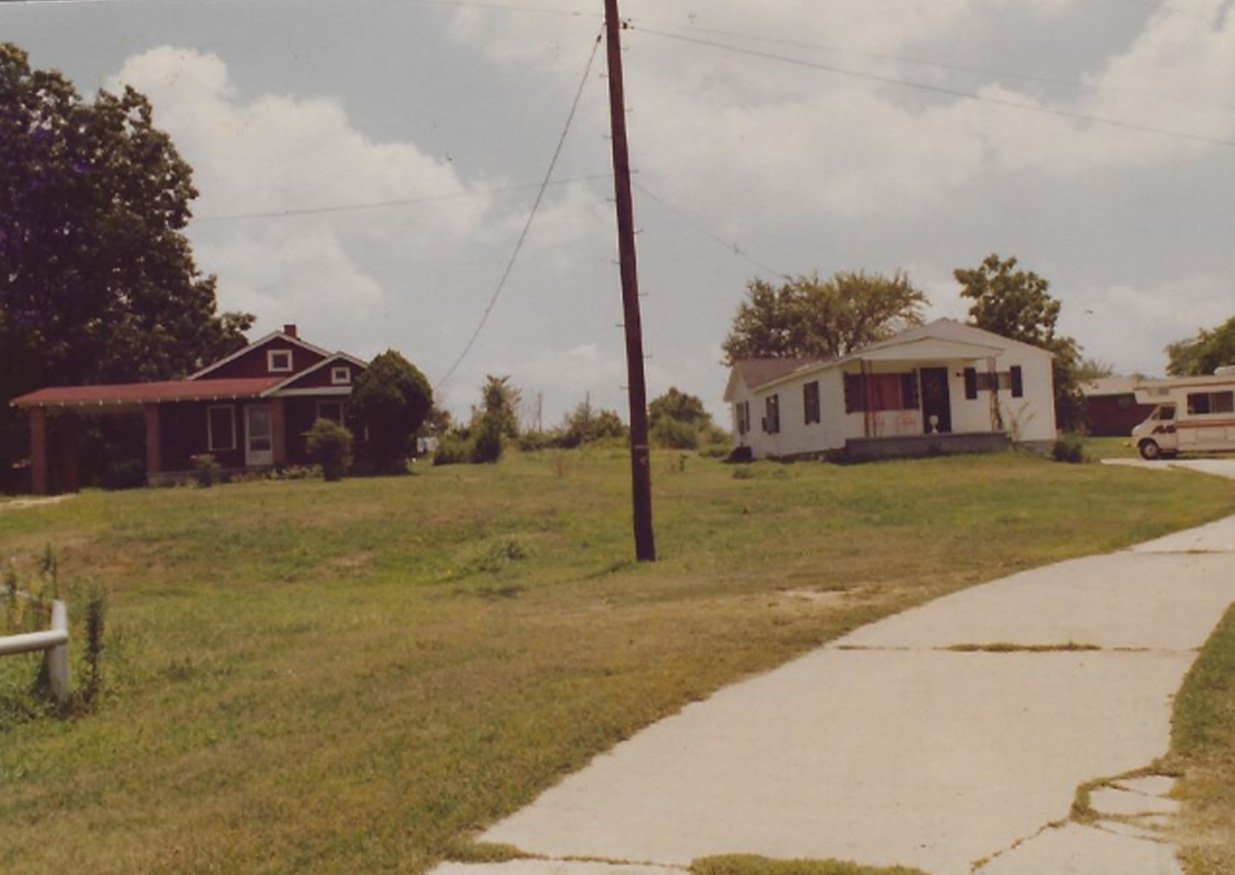
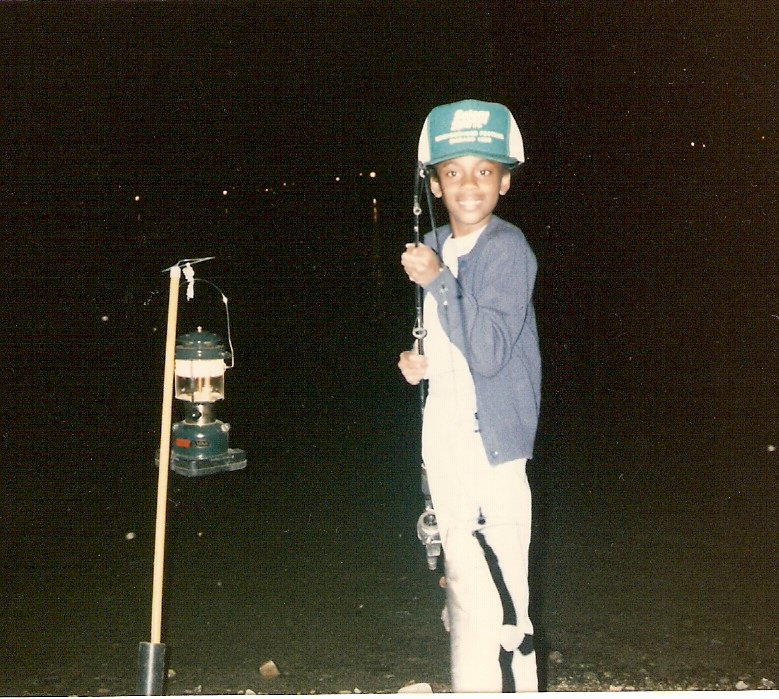
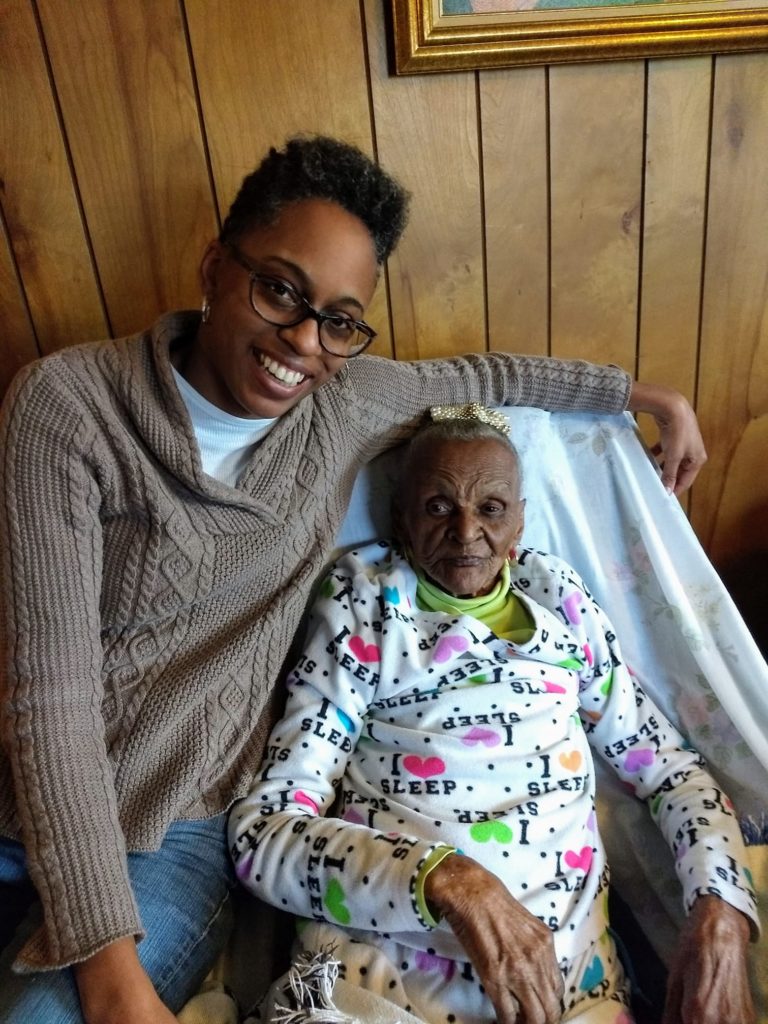
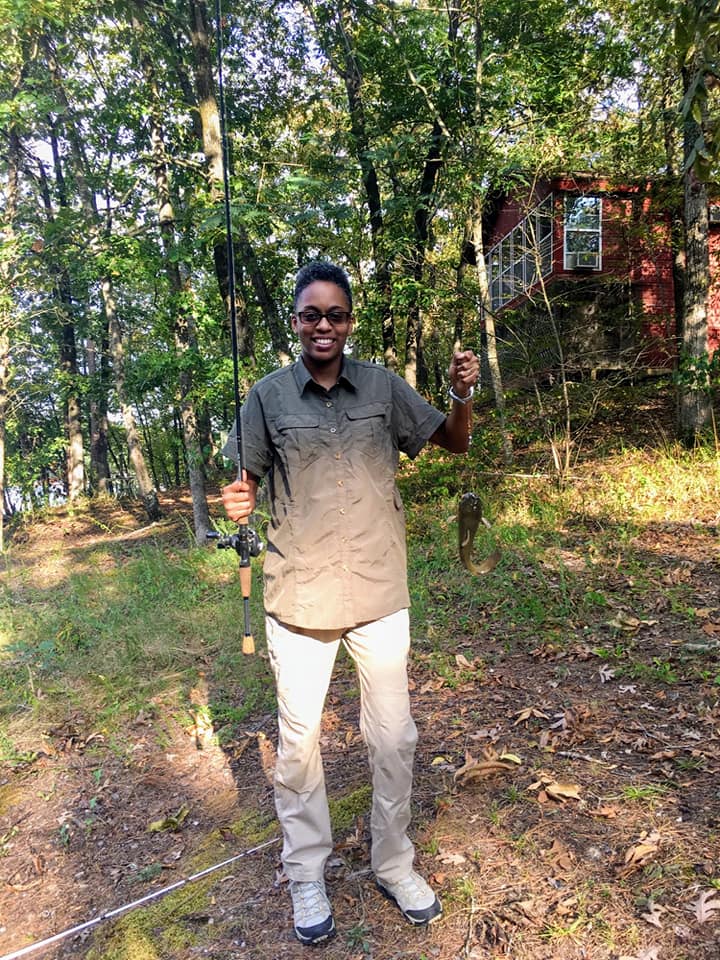
We intend to be good stewards of this land—land we were unable to inherit like so many other African Americans whose families were driven from properties that would have provided generational wealth to their descendants. We are currently installing solar energy on the property and intend to use clean energy to produce clean food. And our dedication to composting, recycling and repurposing has greatly reduced our household waste.
Worthy’s great-grandfather left Hot Springs, Arkansas, in the 1950s for Chicago to work in the steel mills. “According to family history, my great-grandfather experienced frequent racism, and in an effort to protect his daughters, he moved up north,” she tells me. Three-and-a-half years ago, Worthy left Chicago like my wife and I, “because of the growing violence … and the high cost of living,” and relocated to Georgia.
“I collect the water to irrigate my garden from cooking, combining unused water from water bottles and catching rainwater,” Worthy notes, adding that she currently container gardens—she plants in constructed garden beds and purchased containers instead of directly sowing onto the land due to the poor soil quality of her location. Black growers amending and working around inhospitable land is often a result of only being able to purchase less than desirable parcels due to racial or financial constraints. My grandfather purchased a small parcel in Memphis that housed a network of Memphis Light, Gas and Water’s pipes, which resembled a Star Trek vessel, and my cousins and I often played within its boundaries. Leah Penniman, founder of Soulfire Farms, writes, “the one hundred-plus acres with a stream running through it dream turned out to be a fantasy beyond the combined financial means and persistence of our collective … The logged, thin-soiled mountainside slopes nearby were within our financial means.” In fact, there is an entire chapter in her book, Farming While Black, dedicated to restoring degraded land and returning it to viable, habitable soil.
Some return south to caretake land their family managed to hold onto despite the odds. Trinice Holden left her family farm in Rome, Georgia, for Rhode Island in 1995 after graduating college. On January 8, 2021, she received a call from her aunt notifying her that her father had passed due to a heart attack and COVID-19. “I flew into Atlanta to make arrangements for burying him and to take care of the family estate with my sister. We both decided we were simply going to sell everything and be done with it,” she explains. “Then we went to the cemetery, and my sister and I realized the importance of what we had in our hands and that we couldn’t simply let go of the land our ancestors fought so hard for and died for.” Holden is in the process of relocating to the family farm and is reaching out to Black farm co-ops and organizations like Soulfire Farms for resources.
Devonka Bratton fled trauma on her Texas family homestead. “I opted to move to Arizona to get away,” she explains. She learned the business side of agriculture in Arizona, yet yearned for the deeper connection to the land she experienced with her Texan roots. Bratton is in the process of transitioning her urban farm practice to her family land in Texas. “There are people that become farmers and those that are born farmers,” she reflects. “I have farming running through my veins, filling my fondest memories, and fueling some of my deepest regrets.”
My mother left Memphis after college to move to Chicago where she met and married my father, an Arkansan. After commuting every few months between Chicago and Memphis on a care rotation with her siblings for my grandmother (until her death last year), my mother longs to return to the South permanently. Soon after my grandmother’s passing, we were notified by the city of Memphis that we owed $30,000 for her home hospice care as part of their program that provides upfront home care and resources for later payment guaranteed by property deed. We managed to pay the debt and hold on to the family home. My mother and her siblings wish to see their childhood home rehabilitated, serving as a family space and home when visiting Memphis, yet it needs work and the gas company fixtures that allowed my grandfather to purchase the property at discount also restrict the amount of building that can occur on the zig-zagging property lines.
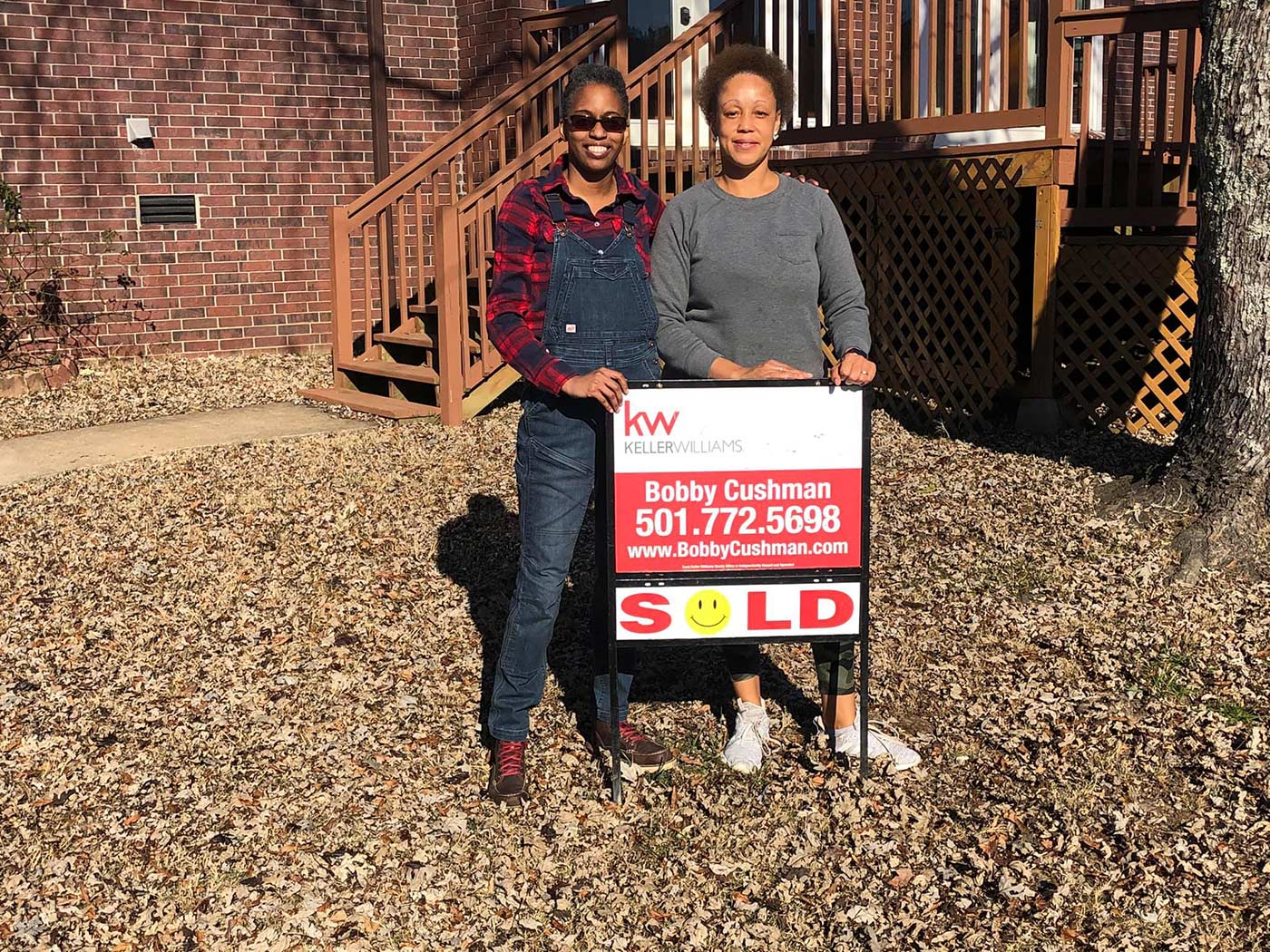
I think of the companion legal procedures that had to occur as we bid on my grandmother’s home that we already owned. The house was still in my grandmother’s name. My mother would be listed as the purchaser, but we also wanted to establish a family trust for the property, as my mother and her sibling co-owners are all seniors. My wife and I own a modest fifteen acres, yet it is more land than either of our families have ever owned. Before planting any seeds in the ground, we have started the process of ensuring this land will be family land to pass through generations in ways that our foreparents’ lands could not. To have our land directly transfer to our descendants through a family trust as opposed to working its way through probate is essential to the homestead functioning as a tool of generational wealth.
Although we weren’t specifically looking to Arkansas in our Southern homestead journey, it feels like a full spiritual circle that both of our deceased fathers hail from the Natural State, and it’s only a two hour-drive to my grandmother’s Memphis home. We are building our Arkansas homestead as a place to welcome our parents who are still facing the limitations imposed on their lands. We are building it as a place for our children, who will be raised on this land and will be free to take leave of it. And for our kin who lost their homes in the Migration. Conner Homestead is for all who have longed for a place to return.





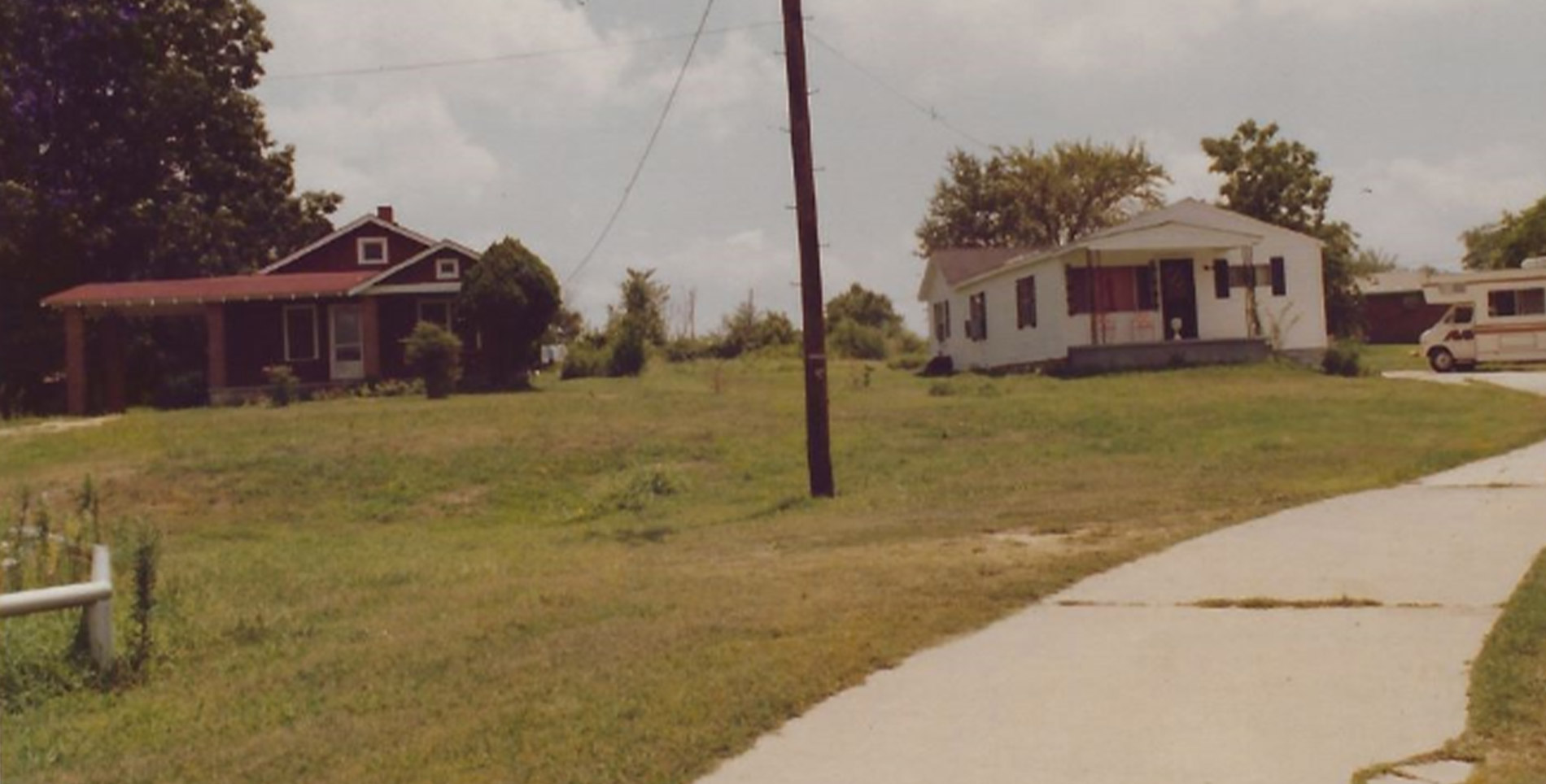

Our comments section is for members only.
Join today to gain exclusive access.